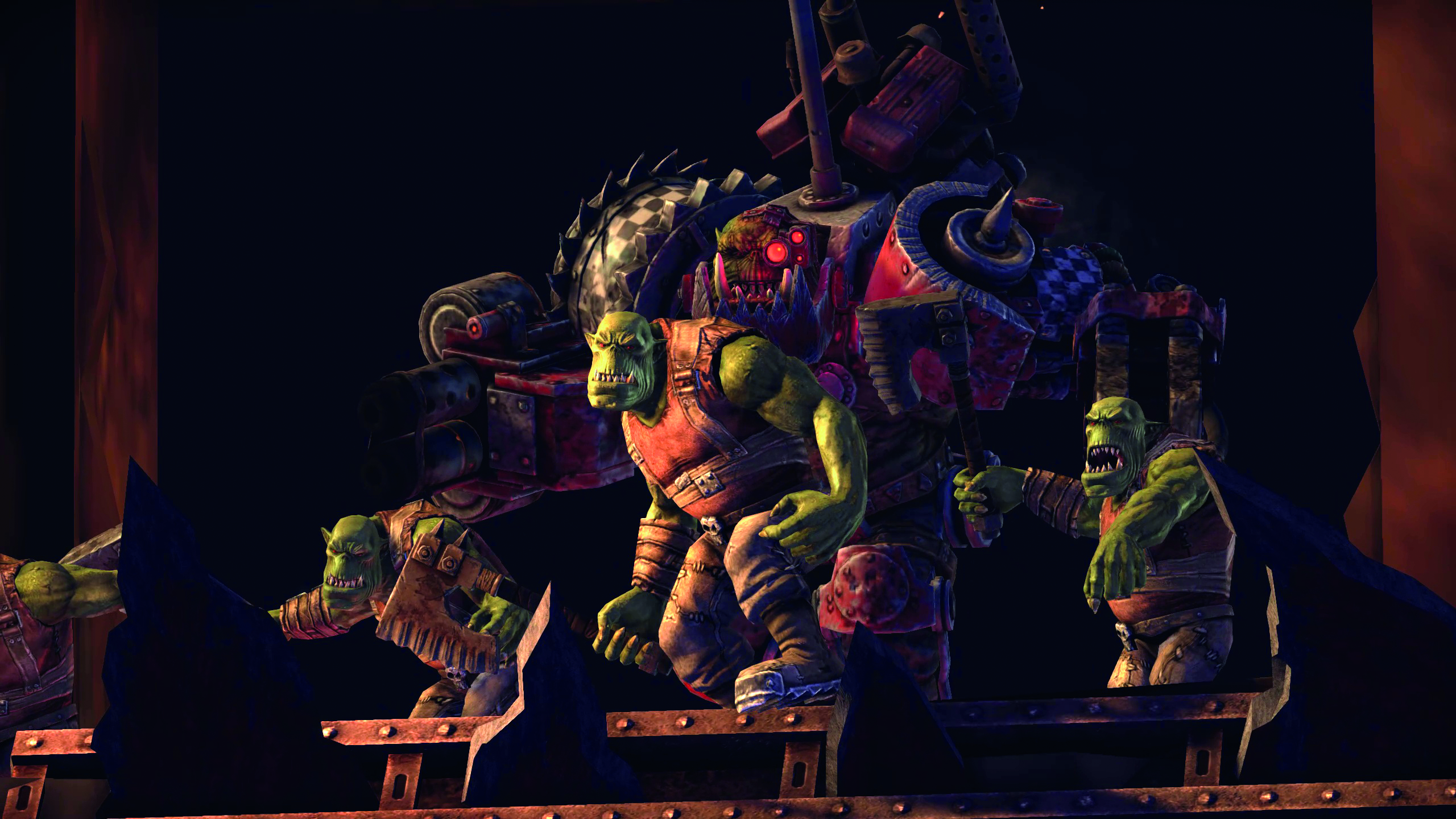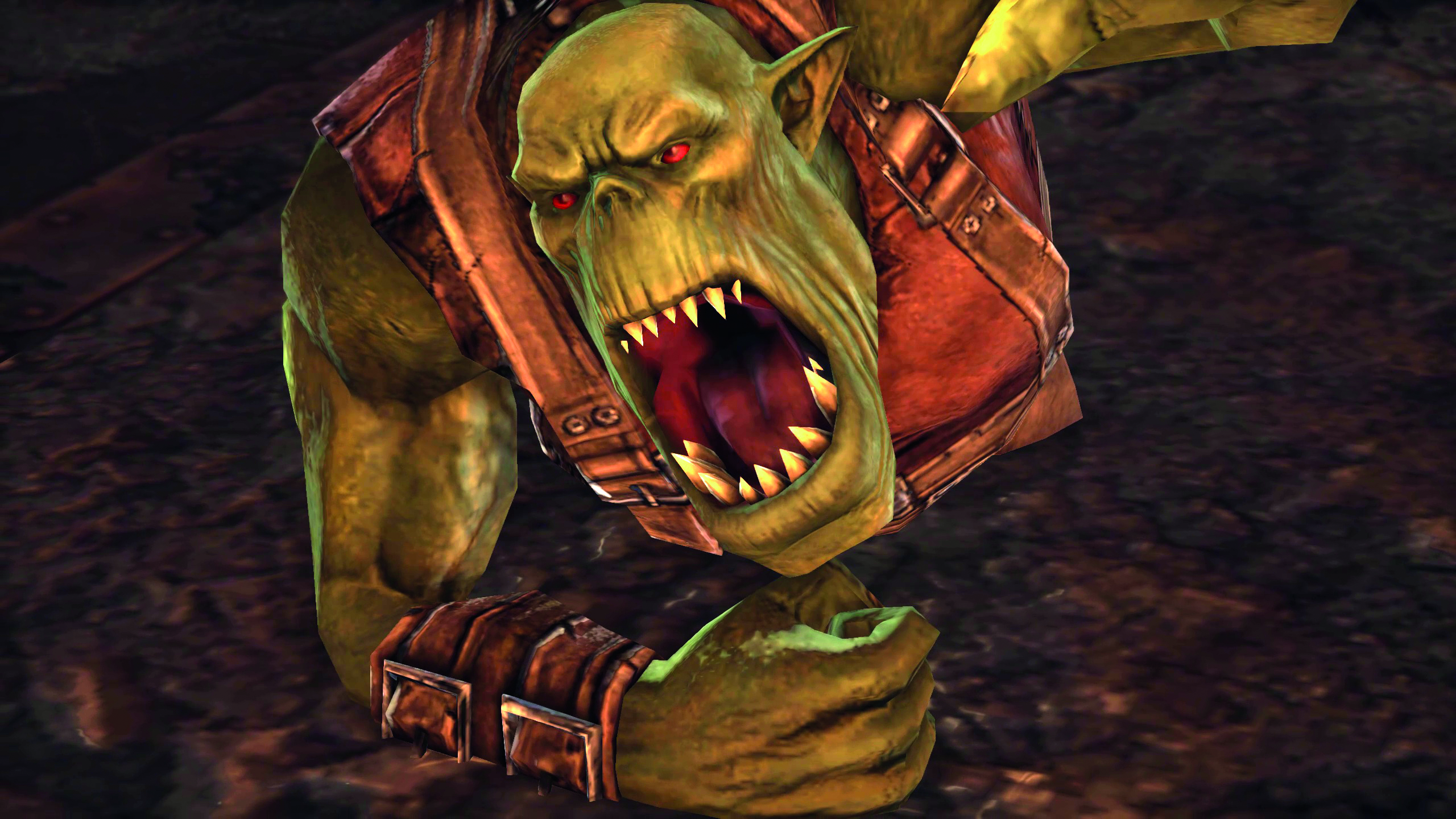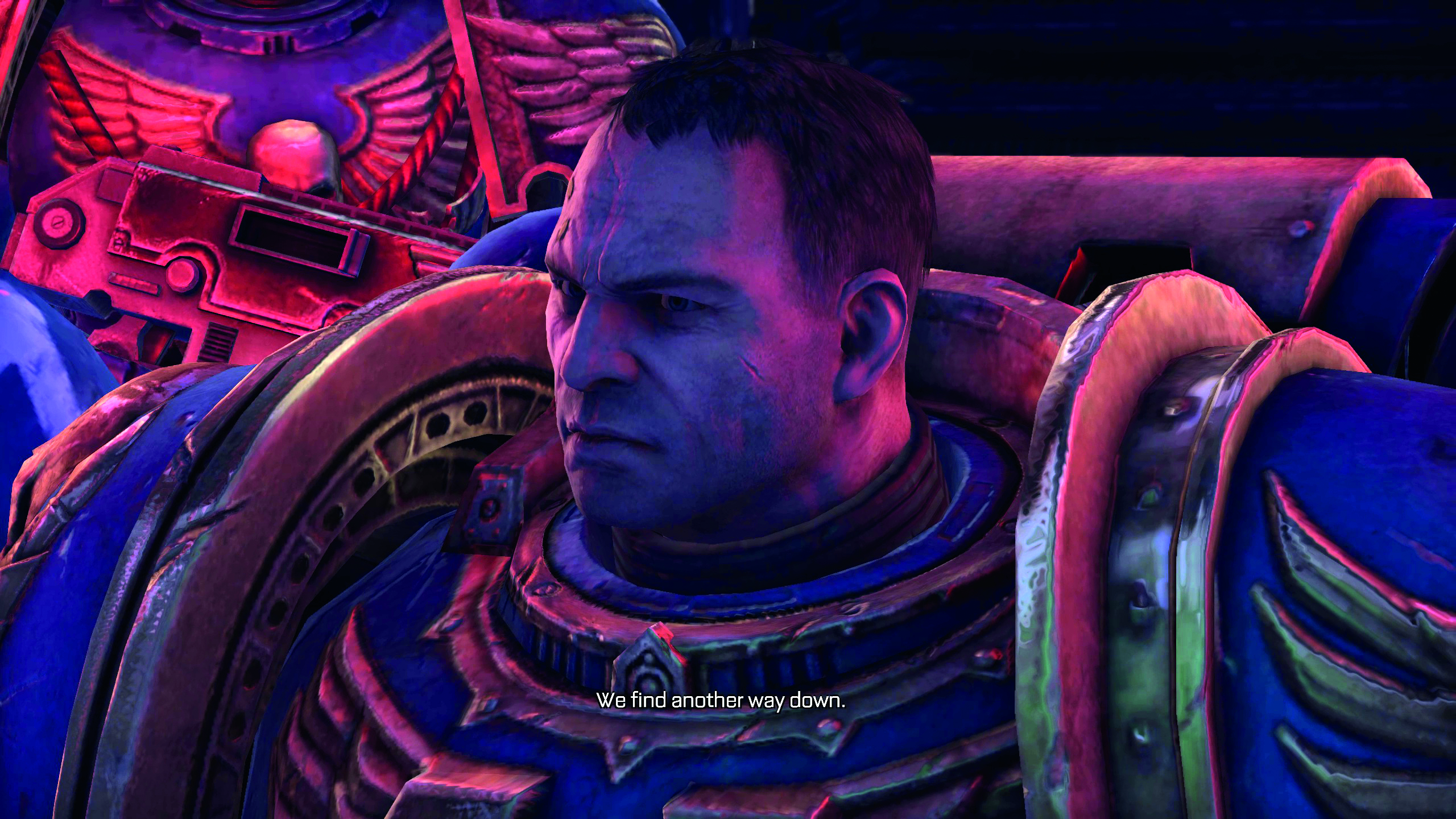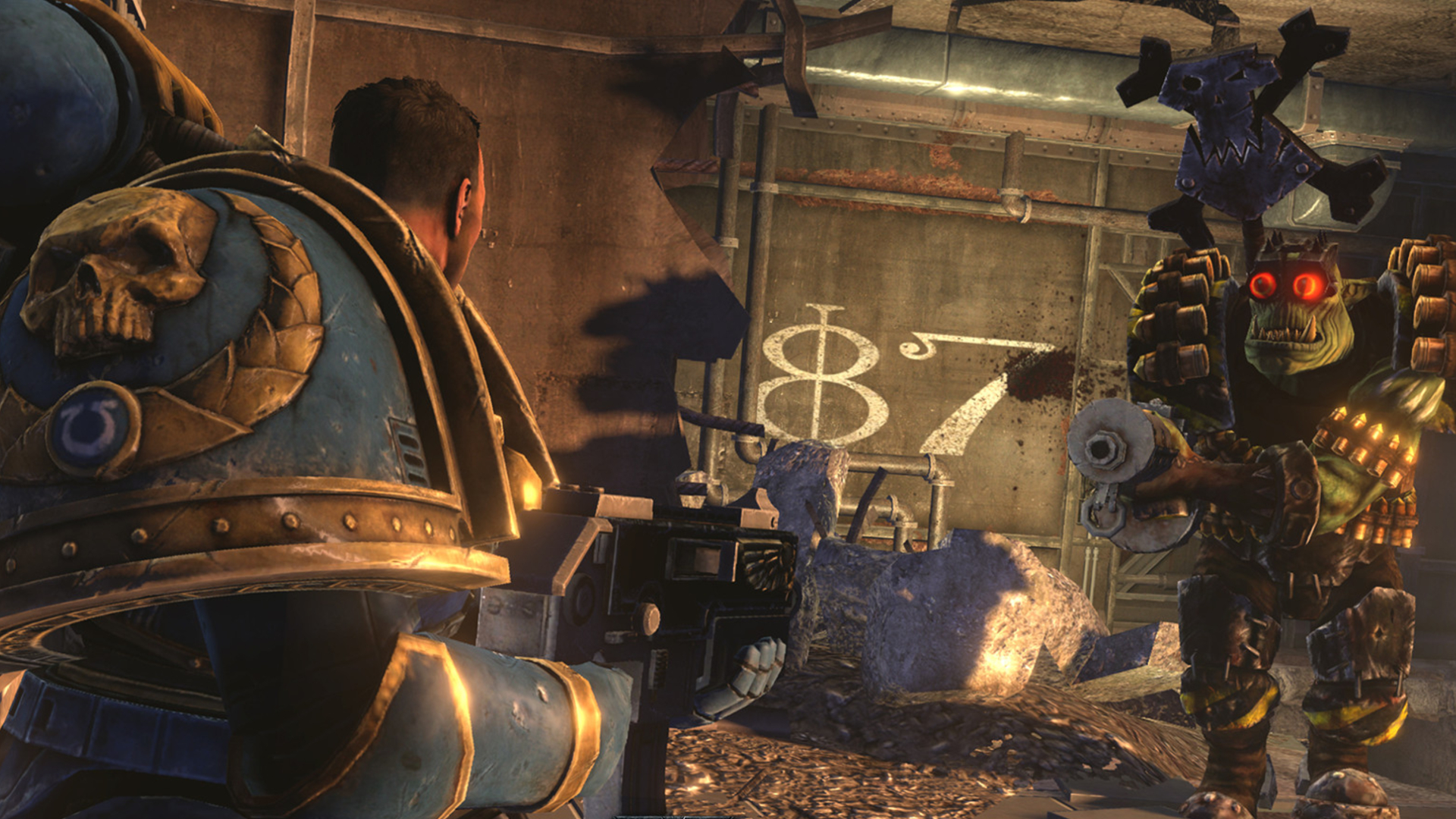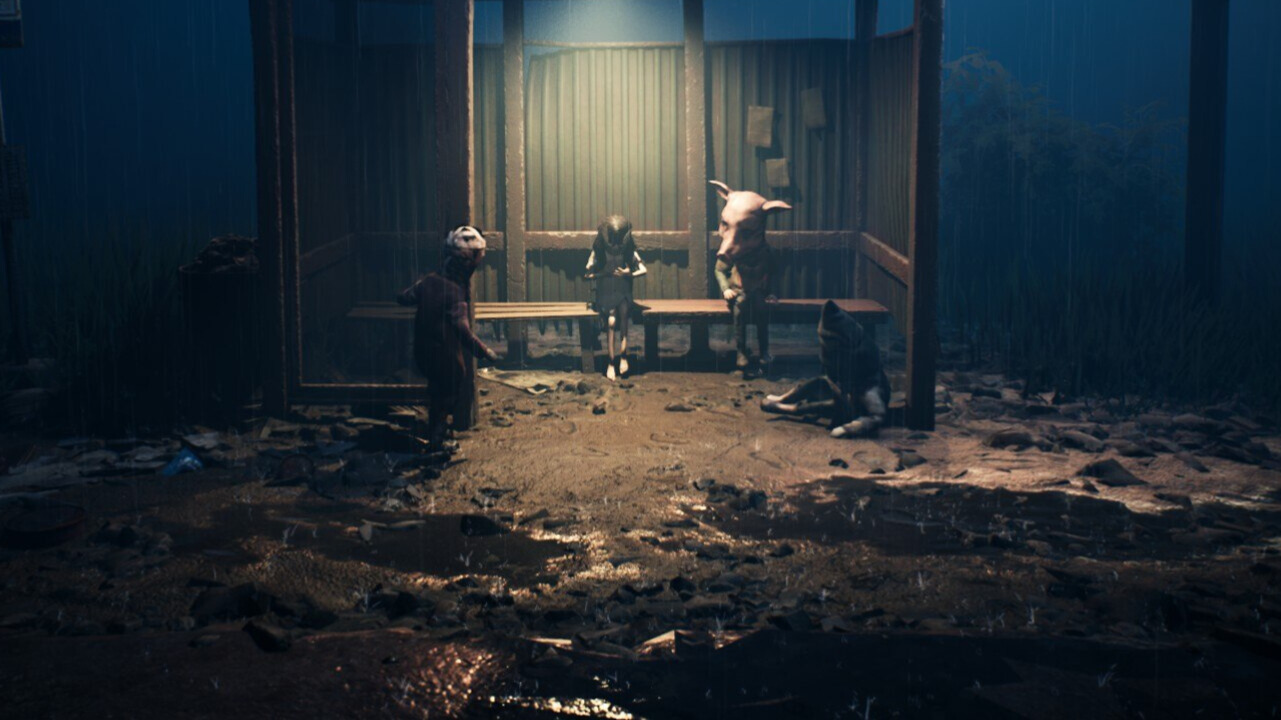Reading a Warhammer 40K novel finally made me appreciate Relic's Space Marine
I read one Warhammer book and now I'm that guy.
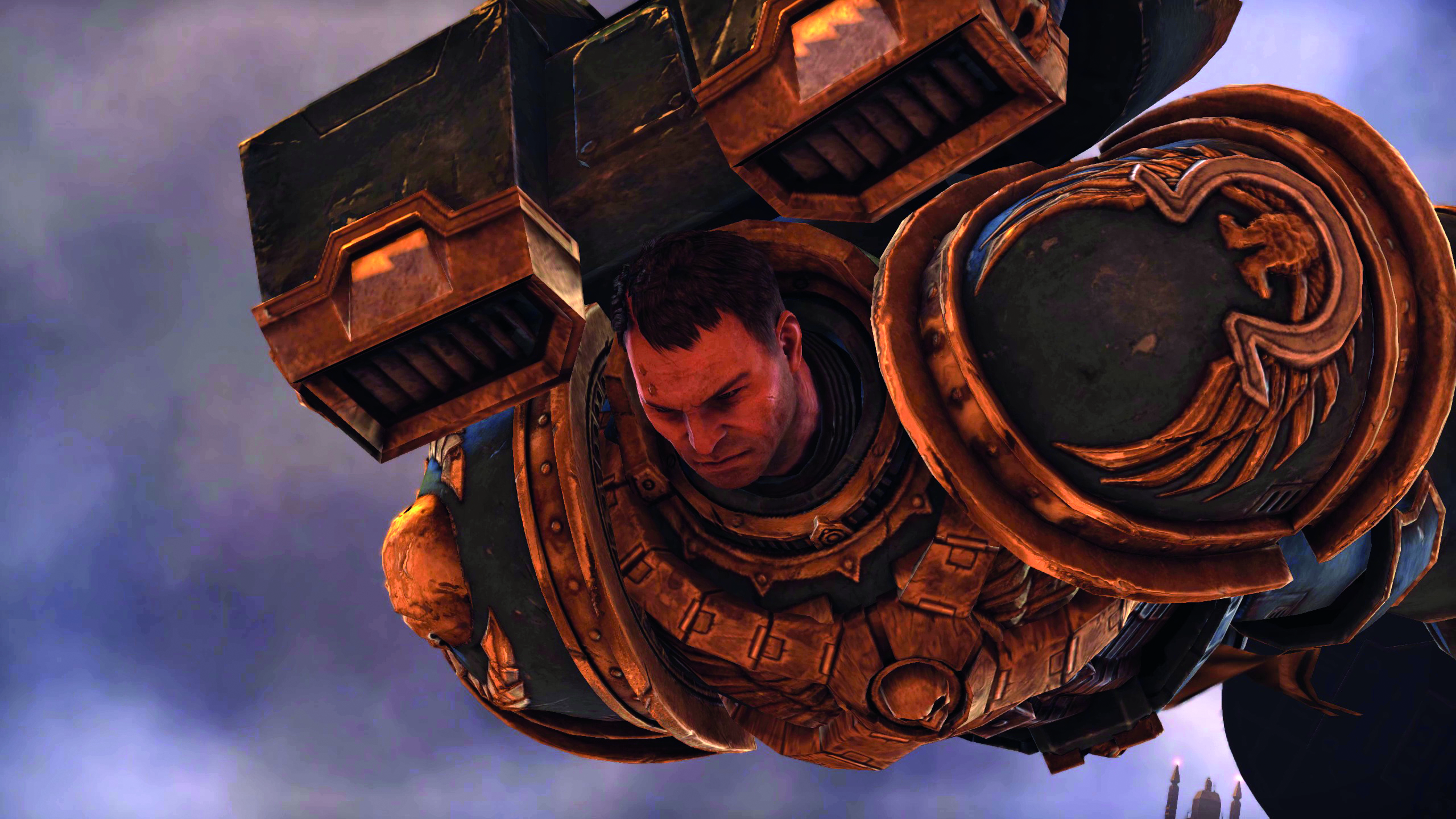
Keep up to date with the most important stories and the best deals, as picked by the PC Gamer team.
You are now subscribed
Your newsletter sign-up was successful
Want to add more newsletters?

Every Friday
GamesRadar+
Your weekly update on everything you could ever want to know about the games you already love, games we know you're going to love in the near future, and tales from the communities that surround them.

Every Thursday
GTA 6 O'clock
Our special GTA 6 newsletter, with breaking news, insider info, and rumor analysis from the award-winning GTA 6 O'clock experts.

Every Friday
Knowledge
From the creators of Edge: A weekly videogame industry newsletter with analysis from expert writers, guidance from professionals, and insight into what's on the horizon.

Every Thursday
The Setup
Hardware nerds unite, sign up to our free tech newsletter for a weekly digest of the hottest new tech, the latest gadgets on the test bench, and much more.

Every Wednesday
Switch 2 Spotlight
Sign up to our new Switch 2 newsletter, where we bring you the latest talking points on Nintendo's new console each week, bring you up to date on the news, and recommend what games to play.

Every Saturday
The Watchlist
Subscribe for a weekly digest of the movie and TV news that matters, direct to your inbox. From first-look trailers, interviews, reviews and explainers, we've got you covered.

Once a month
SFX
Get sneak previews, exclusive competitions and details of special events each month!
This article originally appeared in issue 350 of our glossy magazine. You can get it delivered right to your door by grabbing a subscription, which will also net you special subscriber-only covers.
Looking back, my life divides cleanly into two distinct halves. Forget puberty, forget wrapping college, teaching high school, and moving across the US for a PC Gamer internship. Forget all those broken bones and all that kissing and crying. It's just pre-Warhammer 40K James and post-Warhammer 40K James now. There's old Gears-of-War's-chainsaw-executions-are-incredibly-nasty James, and James, born again, who considers flinging around the arterial muck found within dissenters of the Space Marines an absolute, genuine art.
It's why a game like Space Marine (Chaos Marine sequel ASAP please), once disregarded as some action figure shooter cash-in, hits so well even all these years later. So many of us skipped right over a classic, but if your journey was like mine, I totally understand why. I bounced off it way back in 2011, but even after reading one Warhammer 40K novel, it's a much more enjoyable game.
Hammer time
My first experience with Warhammer 40K was about a decade ago when I picked up the Dawn of War RTS games in a Steam sale. I had no attachment to the source material, just the vague notion that what I was looking at was clearly a Starcraft rip-off (little did I know the opposite was actually true). From that point, I would recognise whenever another 40K game was incoming, taking note of the leisure with which Games Workshop tossed the licence around. Most games were just OK from what I gathered, so Warhammer games started to become white noise to me.
Skip ahead to 2020: a pandemic is on, I just moved and can't really get out there and shake hands quite yet, so I've been reading just about anything a coworker sets in front of me. Simon Spurrier's 40K novel Lord of the Night ended up near the top of the reading list, so senior reporter Steven Messner and I decided to take the 40K plunge together. Before going in I thought Warhammer 40K was a thin sci-fi foundation of cliches to give the tabletop game some greater stakes, and it might still function as that for some people, but good lord, I'm not sure I've read anything so hyper violent that feels designed with the aim to joyfully bully fascists and toxic masculinity.
And like Redwall's pages-long feasts in which every dish is detailed from top to bottom, texture to smell to taste, the same word counts are applied to describing what happens to a man when he's pressed through metal grating or sliced from tip to toe by impossibly sharp bladed gauntlets.
Men are made into Swiss cheese, melted, chopped, baked – the violence is so grotesque and indulgent that it just becomes comedic. Paired with a sociopolitical culture that places loyalty, power, infinite capital gain at all costs, and total emotional repression at the fore, and you get galactic wars spanning millennia that are largely driven by greed and petty male bullshit. It's amazing. I don't think I've cackled so much reading a book.
Keep up to date with the most important stories and the best deals, as picked by the PC Gamer team.
Space Marine is a fantastic, induldgent game.
With fresh eyes dripping with gore, I knew I had to revisit the pile of unplayed 40K games in my Steam library, and Space Marine was at the top. Space Marine plays on the surface of the 40K universe, rarely spending time developing characters or building out big, important story arcs—it feels like a fan game, and even though my knowledge of the history of the 40K universe is thin, I’m a fan now, but it’s clear why I glanced off so easily when it was released. Without the ability to nest Space Marine's narrative in the self-aware, satirical context it's built on, there's not much to grab onto unless you're just in it to gut Orks.
Ork-ward
So when you see an Ork explode for the first time in Space Marine, Relic's attempt at a 40K third-person action game, that flat, misty particle effect takes on new life if you've even dipped a toe into the extended universe. Every time Captain Titus, the protagonist in Space Marine, belts out praise to the Emperor or salutes a fellow marine near death in blind, horrific allegiance to some mega powerful sad boy entity, I'm hooting. Every time we cleave an Ork in two or crash down on a horde from 50 feet in the sky during a jump pack segment, I'm hollering. Space Marine is a fantastic, indulgent action game, but even more so if you've done the extra-curricular reading.
And now that I have a runway, I can finally appreciate what a unique game Space Marine actually is and how it was directly in conversation with Gears of War at that series' peak popularity. When waist-high cover systems were all the rage, Space Marine was a game that looked like Gears of War at first glance, but threw the cover system in the trash. The Space Marine is the cover in Space Marine, and regenerating health uses a system that feels a lot like the early inspiration for Doom 2016's Glory Kills.
When your health gets low, you're encouraged to run headfirst into a crowd and perform special execution moves to get a chunk of health pack. It's a system that perfectly suits the interplay between ranged and melee combat, embracing the godly power of each Space Marine while making for a fascinating shooter based on crowd management.
Pest control
Early on, combat is a lot of thinning legions of little Ork grunts into mist with chunky weapons like a heavy bolter before the horde inevitably closes the gap and surrounds you, at which point you need to whip out the chainsword and rinse the rest away with powerful, effortless swipes. The little Orks are like bugs, but some of the bigger enemies require well-timed dodges or attention to specific weaknesses.
Later on, you'll often get rushed by a horde, then flanked by snipers from all angles while bigger enemies trickle in. Unpicking each encounter requires constant attention to enemies at every distance, and the combat supports seamless movement between shooting and melee attacks, truly supporting the fantasy of being an adept superhuman soldier who's done this dozens of times over.
Things get especially good later in the campaign when the Legions of Chaos show up. By then you've built up a pretty thorough arsenal too, including the Meltagun, a short-ranged weapon that spits out a 1,000°C beam of liquid light, or the Thunder Hammer, which stores kinetic energy in the head and releases it on impact. I'm almost annoyed with how ga-ga I go for every scrap of excess in Space Marine, but in these difficult times where we so often feel powerless, wielding a hammer that could flatten a tank only feels fair.
But Space Marine hasn't aged perfectly. Please forgive the narrow corridors. Forgive the ugly UI that doesn't scale nicely. The environment variety and texture variety is limited, too, broadly reflecting the Brown Era of Xbox 360 and PS3 shooters. Those muddy browns and greys are pretty ugly blown up at modern PC resolutions too, though I'm sure a Space Marine would appreciate the drained utilitarian colour palette. All colours must bow to the emperor.
Now that I know a good portion of Warhammer 40K is just an excuse to watch fascists give themselves a wedgie in geopolitical slow-mo, I'm game for just about anything 40K, and Space Marine is a fantastic follow-up to my first book. I'm eyeballing those Dawn of War RTS games now, too, though maybe I'll get a few more books down first. And if you're still not sold on the universe, well, if you've ever been so mad at how cartoonish World of Warcraft looks that you wished you could stab it, Space Marine might do you right.
James is stuck in an endless loop, playing the Dark Souls games on repeat until Elden Ring and Silksong set him free. He's a truffle pig for indie horror and weird FPS games too, seeking out games that actively hurt to play. Otherwise he's wandering Austin, identifying mushrooms and doodling grackles.
